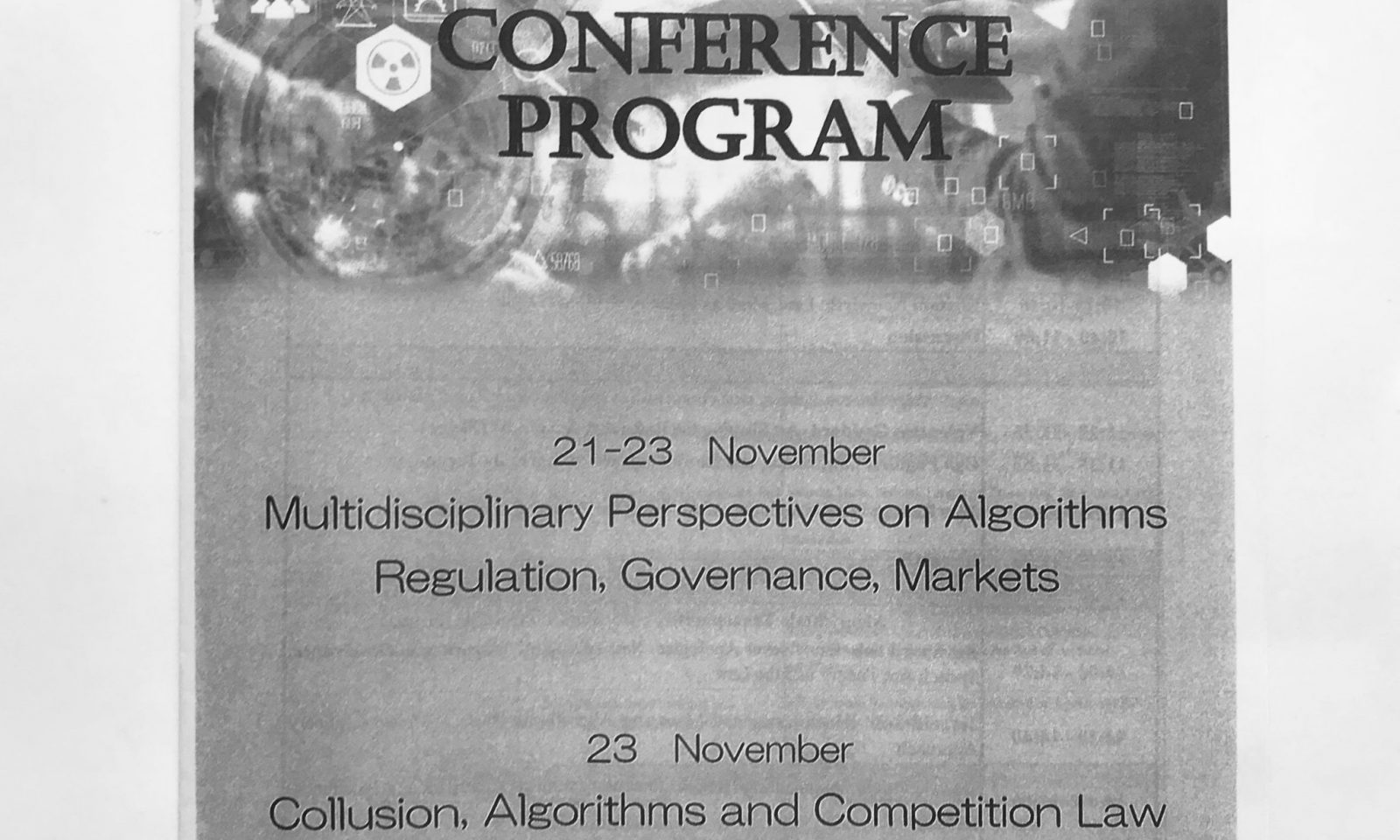IPI at international conference “Multidisciplinary perspectives on algorithms” at Kyushu University
During 21. and 23. November the International Programs in Law of the Kyushu University’s Faculty of Law organized the conference Multidisciplinary perspectives on algorithms. Tjaša Zapušek, research assistant at IPI presented recent findings of her PhD research at University of Zürich.
Tjaša Zapušek talked about differences between three different ‘decision-making processes’ that occur as a consequence of three different types of systems, namely, three different types of algorithms. Through this systematization she examined legal concerns regarding foreseeability and certainty of the system’s actions and applicability of existing legal rules. The increasing complexity of algorithms that are governing autonomous systems will result in systems with sophisticated self-learning capabilities, and more importantly, in the ability of creating unforeseeable and autonomous decisions. From a legal perspective, the test of foreseeability can be described with a sentence whether a person can see/recognize a systematic relationship between the type of accident that the plaintiff suffered and the defendant’s wrongdoing. Considering the aspect of foreseeability, a defendant may escape liability if scientists cannot predict a systematic relationship between wrongdoing and harm.
In the past couple of years, the model complexity has grown substantially. Some of these algorithms are often considered as ‘black boxes’, identifying that there is still lots of obscurity surrounding their operation. Even though the latter often rewards us with models of higher accuracy and productivity, it usually comes at the expense of human interpretability.
The main goal of this event was to prevent that this issue leads to either under or overregulation and to bring together experts with a background in law, technology, economics, sociology, and ethics to address the issue.
The Grand Board of the European Union Intellectual Property Office (EUIPO) finally ruled that the figurative sign ‘COVIDIOT’ cannot be registered as an EU trademark.
The 4th Open Knowledge Day took place on Tuesday 17 October 2023, with an accompanying workshop on 18 October 2023. This year it was organised by the Open Data and Intellectual Property Institute (ODIPI) and supported by Knowledge Rights 21 (KR21).
We invite you to the fourth Open Knowledge Day and the workshop, which will take place this year within the framework of the programme and with the support of Knowledge Rights 21. The event will bring together experts from different European countries to discuss two topics: the first part will deal with the legal basis for data analytics, which is a key part of machine learning and related artificial intelligence, and the general exception for research. In the second part, open science in theory and practice will be presented both in Slovenia and in some Western Balkan countries. Representatives of research and educational institutions from Slovenia and the Western Balkan countries, as well as interested members of the public, are invited to attend.
Dr. Maja Bogataj Jančič, a renowned expert in copyright law, has joined the Berkman Klein Center for Internet & Society at Harvard University, where she will serve as an affiliate researcher for the next two years.





